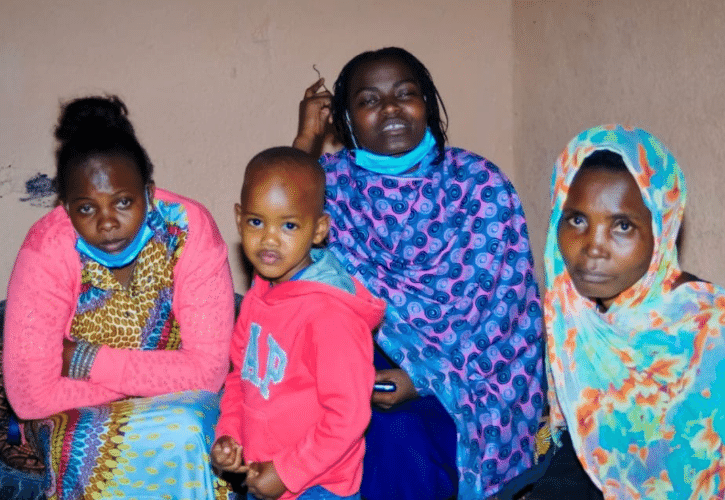Let's Talk Human Rights

Allying for Disability Rights as Human Rights
By Anna Beebe ‘22, Grace Cannon ‘23, Cameron Nowlin ‘22, Liliana Busic ‘23, Steven Shamblen ‘22 and Sam Laird ‘21
Disability rights are human rights. While this might seem obvious to some, this relationship is often not recognized by many governmental entities. So why do we need to actively distinguish disability rights from a broader human rights discourse? The answer is simple; if we do not specifically fight for the rights of differently-abled bodies, then disability issues will disappear or be overlooked. To set them apart means to draw the needed attention to them and to prioritize them.
In December of 2006, the United Nations (UN) adopted the Convention on the Rights of Persons with Disabilities (CRPD). This document provides a framework that not only protects the rights of people with disabilities but requires duty bearers to create spaces where people with disabilities can actively participate in decisions that affect them and enjoy their freedoms just as much as able-bodied people. While disabilities can potentially make certain skills more difficult to learn or undertake, they also give people the ability to thrive in different environments. Essentially, having a disability does not mean an individual is less deserving of an education. The CRPD calls for governments to not only offer equal education systems but equitable education systems. Despite this, the UN reports that worldwide, different-abled body individuals from the ages of 15 to 29 are less likely to attend school and more likely to be illiterate than those without disabilities.
So, how do we fill this gap?
It begins with education and awareness. As global citizens, we must recognize these inequities and demand more from our governments and school systems. Non-governmental organizations can play a significant role in making these demands, especially in developing countries where government institutions are not as strong. Nonprofits have the power to advocate for disability rights and also work with the disabled community to amplify their voices. Too often, members of majorities speak on behalf of minority groups instead of empowering and listening. Able-bodied individuals must become not only supporters of people with disabilities but allies to their communities. Allyship can take various forms; it is an ongoing process that calls for constant education, effort, and solidarity.
Allyship Through Partnerships
Students have much to offer non-profits organizations because we bring a fresh perspective to many systems that have been in place for so long. While you might think your voice is too small to change the discourse about different-abled bodies, you are mistaken. Whether you are a human rights studies student, graphic design student, or engineering student, there are places for you to actively participate in the protection of disability rights. For instance, supporting the work of nonprofit organizations that advocate for the community of persons with disabilities will allow you to learn more about how to be anti-ableist and contribute your passions to institutions that matter. Partnerships allow for mutual growth and community building- both key parts of advocacy.
This past semester, students in Dr. Natalie Hudson’s upper-level Politics of Human Rights class worked with a grassroots nonprofit based in Rwanda called “Miss Able-Humura.” This organization fights for the rights of women with disabilities and provides them opportunities to work, become empowered, and receive an education. In Rwanda, 60.3% of disabled women are illiterate, compared to 30.6% of the general woman population. This gap exemplifies the need for action as both a disability rights issue and a women’s rights issue, and Miss Able-Humura is doing just that. Founded by a woman named Godelive Ayinkamiye, the organization was rooted in anti-ableist action. Godelive married a person with a disability and in return, was shunned from her community. Rather than living in shame, Godelive created an organization that celebrates different-abled bodies.
As a class, we were able to bring our ideas and talents to help Godelive expand outreach on social media. Additionally, we helped find ways to obtain a 501c(3) status so that the organization can receive funding in the United States. These small actions might seem trivial, but in reality, they are building blocks to grow an organization with the potential to change disability rights discourse in Rwanda and worldwide.
While we wrapped up our work with Miss Able-Humura at the end of the semester, we hope that the partnership with this organization and the University of Dayton is just beginning with future students able to continue this development work.
Allyship Through Education
In this process, we learned that to be an ally, one must constantly unlearn toxic societal behaviors and norms that have been drilled into our brains. If you are currently a student on campus, there are many opportunities to become a disability rights ally. An exciting opportunity to learn more about different-abled bodies has been created by faculty from the Religious Studies Department and Human Rights Studies Program. Now, students can enroll in a 12 credit-hour Disability Studies minor where they will learn about the intersection of disabilities with other human rights issues such as race and gender. It will challenge student’s implicit biases and call them to reflect on the ideas of bodily normality, ableism, and advocacy. The minor is offered to all students, as disability rights are multidisciplinary and applicable in all career paths in some way.
Anna Beebe is a third-year student studying human rights with minors in sustainability, political science, and a nonprofit and community leadership certificate.
Grace Cannon is a sophomore human rights studies major.
Cameron Nowlin is a third-year human rights major with a minor in women and gender studies and Latinx studies.
Liliana Busic is a second-year student studying human rights.
Steven Shamblen is an international studies major with a concentration in global peace and security. He has minors in Spanish, human rights, and political science.
Sam Laird is a political science major.
Photo courtesy of Miss Able-Humura, provided to the human rights studies students
